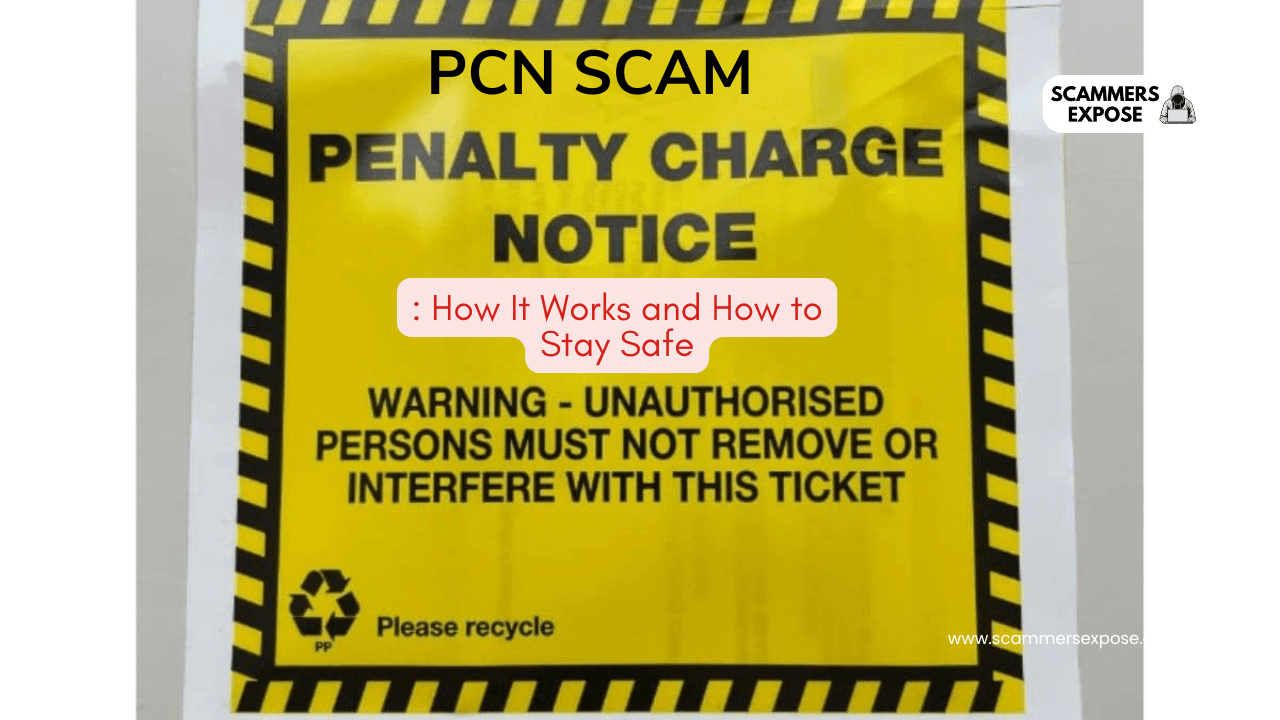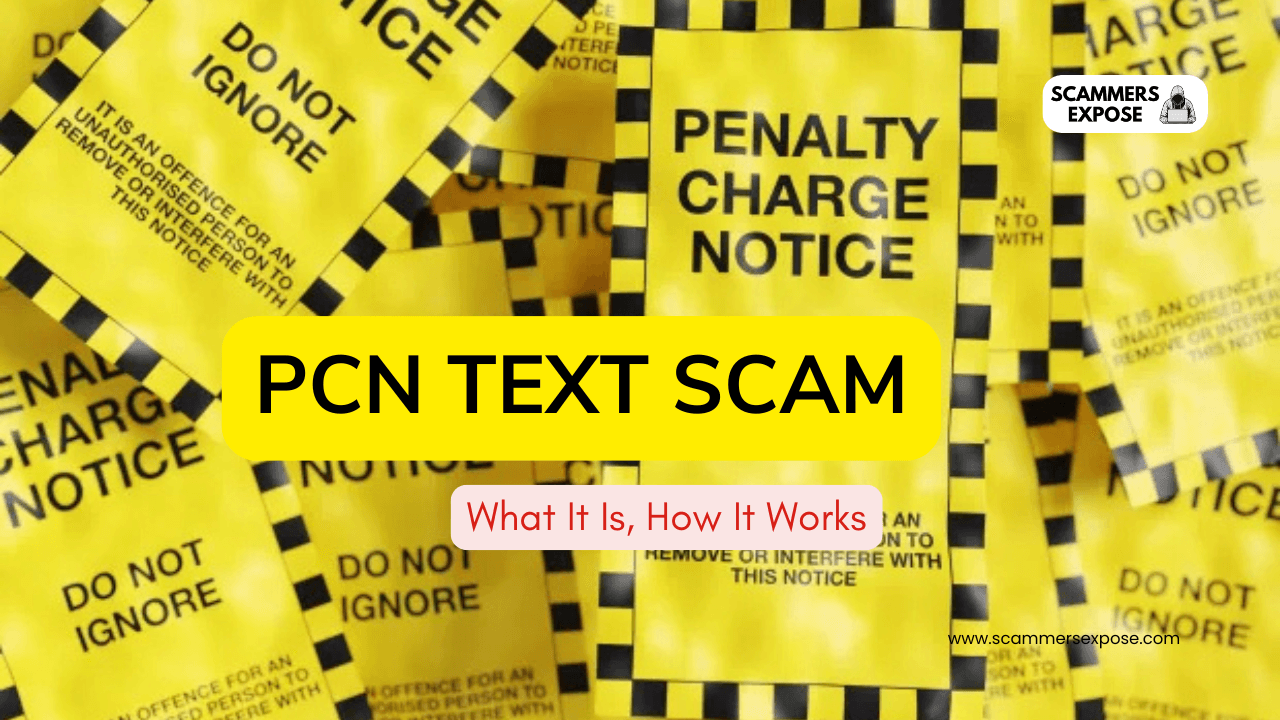The Parking Fine Text Scam is a rising threat that targets unsuspecting individuals through fraudulent text messages. These scams often claim that you have an unpaid parking fine, urging you to click on a link or pay immediately. Understanding how this scam works and recognizing the warning signs are crucial steps in protecting your personal and financial information. Let’s dive into the key aspects of the Parking Fine Text Scam and how you can safeguard yourself from becoming a victim.
- What is a Parking Fine Text Scam?
- How the Parking Fine Text Scam Works
- Warning Signs of a Fake Parking Fine Text
- What to Do If You Receive a Scam Text About a Parking Fine
- How to Protect Yourself from Parking Fine Text Scams
- Reporting a Parking Fine Text Scam and Next Steps
- Protecting Yourself from Future Parking Fine Text Scams
What is a Parking Fine Text Scam?
A Parking Fine Text Scam is a type of fraud where scammers send text messages falsely claiming that you owe a parking fine. These texts often include a link to a fraudulent website designed to steal personal and financial information. Scammers take advantage of the fear of penalties, urging quick payments. This scam has been growing in frequency as more people rely on mobile notifications for parking violations.
How the Scam Works
- Scammers impersonate official authorities, such as local councils or parking agencies.
- You receive a message claiming you have an unpaid parking fine or Parking Penalty Charge Notice (PCN).
- The text includes a link to a fake payment website, requesting immediate payment.
- The scam plays on urgency, warning of extra fees or legal action for non-payment.
Common Features of a Parking Fine Text Scam
- The text is sent from an unknown or suspicious number.
- The link often uses a URL shortener like bit.ly to hide the true destination.
- There’s an emphasis on immediate payment, with threats of legal action.
- The requested payment methods may include non-standard options like bank transfers, cryptocurrencies, or gift cards.
- The ticket number is fake and won’t be recognized if you try to verify it through official channels.
Red Flags to Watch For
- Receiving a fine notification when you haven’t recently parked in a restricted area.
- The text directs you to a website that doesn’t have a .gov or official domain.
- The message mentions extreme consequences like jail time, which is never a penalty for parking fines.
- The text asks for unnecessary personal information such as your home address or full credit card details.
Real-Life Examples
In the UK, many people have reported receiving fraudulent texts claiming to be from local councils. The texts often include links to websites that look official but are actually fake, and the ticket numbers provided do not exist in any legitimate records. These scams are particularly convincing because they use official-sounding language and mimic the appearance of real parking fine communications.
How the Parking Fine Text Scam Works
The Parking Fine Text Scam is a phishing technique where scammers send fake messages pretending to be from a parking enforcement agency. These texts create a sense of urgency, pushing recipients to act quickly by paying a fraudulent fine. This scam is designed to steal personal and financial information.
Steps Scammers Use in the Parking Fine Text Scam
- Scammers send a text message claiming an unpaid parking fine.
- The message includes a link directing you to a fake website that mimics an official parking or government site.
- The text warns of additional fines or legal action if the payment isn’t made immediately.
- Scammers request personal details, including credit card information or bank details.
Identifying the Parking Fine Text Scam
- Unexpected fine: If you haven’t parked illegally, receiving a text about a fine is a clear red flag.
- Suspicious links: The website often uses URL shorteners or unofficial domains.
- Pressure tactics: Threats of immediate legal action or high penalties for non-payment are used to instill fear.
- Unusual payment requests: Scammers may ask for payment through bank transfers, gift cards, or cryptocurrency.
Warning Signs to Recognize
- The sender’s phone number is unrecognizable, not tied to any official entity.
- Links direct you to websites without a .gov or other trusted domain suffix.
- The text includes a fake ticket number that cannot be verified through official sources.
- The message asks for unnecessary personal information, such as home addresses or credit card details.
Avoiding the Parking Fine Text Scam
- Always verify the legitimacy of any parking ticket number through official channels.
- Never click on links in unsolicited texts.
- Use trusted security software to detect fraudulent sites.
- Report scam texts to your mobile provider by forwarding the message to 7726 in the UK.
Understanding the tactics used in the Parking Fine Text Scam can help you protect your information and avoid falling victim to these phishing attempts.
Warning Signs of a Fake Parking Fine Text
Recognizing the warning signs of a Parking Fine Text Scam is crucial for avoiding financial and personal data theft. Scammers send fake text messages posing as parking authorities, attempting to lure victims into paying fraudulent fines or providing sensitive information. Understanding these signs can help you avoid becoming a victim of this increasingly common scam.
Common Red Flags in a Parking Fine Text Scam
- Unexpected text: The message claims you owe a parking fine even when you haven’t recently parked illegally or received a prior notice.
- Urgency and threats: The text often contains alarming language, warning of extra fines, legal action, or immediate penalties if you don’t pay right away.
- Suspicious sender information: The sender’s number is usually unfamiliar and may look unprofessional, with no relation to official government agencies or parking enforcement.
- Shady URLs: Scammers use URL shorteners or unofficial domains that don’t have a trusted extension like “.gov” or “.co.uk,” indicating a phishing attempt.
- Invalid ticket numbers: When you try to verify the ticket number through official channels, it doesn’t match any real records.
Tactics Scammers Use in a Parking Fine Text Scam
- Mimicking official entities: The scam messages often resemble legitimate parking notices, using official-sounding language and formatting that looks authentic.
- Fake payment portals: The text directs you to a counterfeit website where you’re asked to submit payment for the so-called parking fine. These sites often collect personal details and credit card information.
- Requesting unusual payment methods: Instead of directing you to pay through recognized means, scammers may ask for bank transfers, cryptocurrency, or even gift cards, all of which are harder to trace and recover.
Verifying Authenticity of a Parking Fine Text
- Check the URL: Genuine parking authorities use official web addresses with secure domains. If the link does not look legitimate, don’t click on it.
- Review the ticket number: A real parking fine will include a legitimate ticket number that can be verified through the official website of your local parking authority.
- Contact the parking authority directly: If in doubt, contact your local council or parking authority using official contact information found on their website to verify any claimed fines.
Protecting Yourself from Parking Fine Text Scams
- Do not click on any suspicious links: If you receive an unexpected message, avoid clicking on any URLs within the text.
- Report the scam: Forward the scam text to 7726 (UK) or your local fraud reporting service.
- Use security software: Install trusted anti-phishing and malware protection to safeguard your device against fraudulent sites.
By familiarizing yourself with the warning signs of a Parking Fine Text Scam, you can better protect yourself and your personal information from falling into the wrong hands. Always remain cautious of unsolicited texts and double-check the legitimacy of any parking fine requests.
What to Do If You Receive a Scam Text About a Parking Fine
Receiving a Parking Fine Text Scam can be alarming, but knowing how to respond can help you protect your personal information and avoid falling victim to fraud. Scammers often use urgency to pressure recipients into making hasty decisions. By following key steps, you can ensure your data stays safe.
Steps to Take Immediately
- Do not click any links: Avoid clicking on any links included in the scam message, as they often lead to phishing sites designed to steal personal information.
- Do not reply to the message: Engaging with the sender can expose you to further scams or encourage them to target you again.
- Verify the ticket: If you’re unsure whether the text is legitimate, visit your local council’s website directly and use their parking fine verification system. Never use the link provided in the text.
How to Report a Parking Fine Text Scam
- Forward the scam text: In the UK, you can forward the scam message to 7726, a service for reporting fraudulent texts. In other regions, contact your mobile provider for advice on reporting scams.
- Report to local authorities: Notify your local parking authority or government body about the scam. In the UK, you can report to Action Fraud.
- Report the website: If the scam text directs you to a suspicious website, report it to your local cybersecurity authority. In the UK, you can report fraudulent websites to the National Cyber Security Centre.
Protect Your Information
- Change your passwords: If you clicked on a link or shared personal information, immediately update your passwords, especially for banking or financial services accounts.
- Monitor your bank accounts: Regularly check your bank accounts for any unauthorized transactions. If you shared financial information, contact your bank to flag the issue.
- Run antivirus software: Scammers often use these scams to install malware on your device. Use trusted antivirus software to scan your phone or computer for any security threats.
Staying Safe from Parking Fine Text Scams
- Stay skeptical of unexpected messages: Parking authorities will rarely contact you through text for payment of fines. Always be cautious of unsolicited texts, especially those that create urgency or demand immediate action.
- Verify using official channels: Always use the official website of your local council or parking authority to check for outstanding fines. Avoid using links or phone numbers from unsolicited messages.
By following these steps, you can protect yourself from falling victim to a Parking Fine Text Scam and ensure your personal and financial information remains secure.
How to Protect Yourself from Parking Fine Text Scams
Staying safe from a Parking Fine Text Scam requires awareness of common tactics and proactive steps to safeguard your personal information. Scammers prey on fear and urgency, making it essential to recognize fraudulent messages and avoid falling victim to these schemes. Here’s how you can protect yourself.
Best Practices for Avoiding a Parking Fine Text Scam
- Be skeptical of unsolicited texts: Parking fines are typically sent through official channels like letters or emails, not random text messages. Be cautious when receiving an unexpected text about fines.
- Do not click on suspicious links: Scammers often use shortened or suspicious URLs that direct you to a fake payment site. Instead of following the link in the text, go directly to the official website of your local parking authority.
- Verify any claims: If you receive a text claiming an unpaid fine, check with your local council or parking enforcement agency using their official website or contact number. Never trust information provided within the text itself.
Tools to Safeguard Your Devices and Information
- Install antivirus software: Scammers sometimes embed malicious software in links. Ensure your devices are protected with up-to-date antivirus software to detect and block phishing attempts.
- Enable two-factor authentication (2FA): Add an extra layer of security to your online accounts by enabling 2FA, especially for banking or email accounts. This reduces the chances of scammers gaining access to your personal information.
- Monitor your financial accounts: Regularly check your bank statements for unauthorized transactions. If you’ve shared financial details after receiving a Parking Fine Text Scam, contact your bank to flag potential fraudulent activity.
What to Do If You’ve Clicked a Scam Link
- Change your passwords immediately: If you accidentally clicked a scam link, change the passwords for your online accounts, particularly for sensitive services like online banking.
- Run a malware scan: Use your antivirus software to scan your device for any malware that may have been downloaded through the scam link.
- Report the scam: In the UK, forward scam texts to 7726 or report them to your local fraud prevention authority, such as Action Fraud. This helps authorities track and shut down scam operations.
Common Tactics Used in Parking Fine Text Scams
- Fake urgency: Scammers rely on creating a sense of urgency by threatening additional fines or legal action for non-payment. Real parking authorities typically allow time for payment and don’t demand immediate action through text messages.
- Mimicking official communications: Scammers may use logos or language that mimics legitimate government bodies. However, legitimate fines will always direct you to official government websites, not shortened URLs or unverified domains.
By following these protective measures, you can reduce the risk of falling victim to a Parking Fine Text Scam and keep your personal information secure. Always stay vigilant and double-check any unexpected fines through official channels.
Reporting a Parking Fine Text Scam and Next Steps
If you’ve received a suspicious text message about an alleged parking fine, it’s important to act swiftly and report the scam. The Parking Fine Text Scam is designed to trick people into providing sensitive information or paying fake fines. Reporting these scams helps authorities track the scammers and prevent others from becoming victims.
Steps to Report a Parking Fine Text Scam
- Forward the text to 7726: In the UK, you can report fraudulent text messages by forwarding them to 7726. This free service allows mobile providers to investigate the number and block further scam attempts.
- Report to Action Fraud: For UK residents, you can report the scam directly to Action Fraud, the national fraud and cybercrime reporting center. This can be done online or by calling 0300 123 2040.
- Notify your local council: Contact your local parking enforcement or council to verify whether a legitimate fine exists. If there is no record, inform them about the Parking Fine Text Scam so they can alert other residents.
Reporting the Website Linked in the Scam
- Use the National Cyber Security Centre (NCSC): If the scam text includes a website link, report it to the NCSC. They can work to take down fraudulent websites and reduce the risk for others.
- Check the domain for legitimacy: Look for signs of phishing, such as unusual domain names or poorly constructed websites. Avoid clicking on any links until you’ve verified the site is legitimate.
What to Do If You’ve Already Shared Information
- Contact your bank: If you’ve entered payment details or personal information after receiving a Parking Fine Text Scam, contact your bank immediately to secure your accounts. You may need to block cards or set up fraud alerts.
- Change all passwords: Update passwords for any accounts where you may have used similar login details. Scammers often use phishing attempts to collect credentials for further hacking.
Preventing Future Scams
- Report to your mobile provider: After forwarding the text to 7726, you can also contact your mobile provider for additional advice or tools to block spam messages.
- Enable call and message blocking: Use your phone’s settings or install apps that help filter and block unwanted calls and texts. Many phones have built-in security features that flag suspicious messages.
- Stay informed: Regularly check your local council or government websites for announcements on scam warnings. Many public agencies provide updates and guides to help residents spot the latest scams, including the Parking Fine Text Scam.
By reporting these scams and taking quick action, you not only protect yourself but also contribute to the fight against cybercrime, helping others avoid the same pitfalls.
Protecting Yourself from Future Parking Fine Text Scams
To avoid falling victim to future Parking Fine Text Scams, adopting proactive measures is crucial. Scammers continuously evolve their tactics, so staying informed and vigilant is key.
- Be cautious with unsolicited texts: Always be skeptical of unsolicited messages regarding fines or payments. Legitimate authorities usually contact you via official letters or emails.
- Regularly update your security settings: Ensure your phone’s security features, such as spam filters and two-factor authentication, are activated to prevent scammers from easily reaching you.
- Keep your software updated: Security updates often include patches for vulnerabilities that scammers exploit. Make sure both your phone and any apps are updated to the latest versions.
- Educate yourself and others: Share information about the Parking Fine Text Scam with friends and family, so they too can avoid falling prey to these fraudulent schemes.
Taking these steps will significantly reduce your risk of becoming a victim of a Parking Fine Text Scam and help keep your information safe.
Visit our news section to stay updated with the latest developments in the case. For more insights into financial fraud and investor protection, visit Scammers Expose.










Leave a Reply